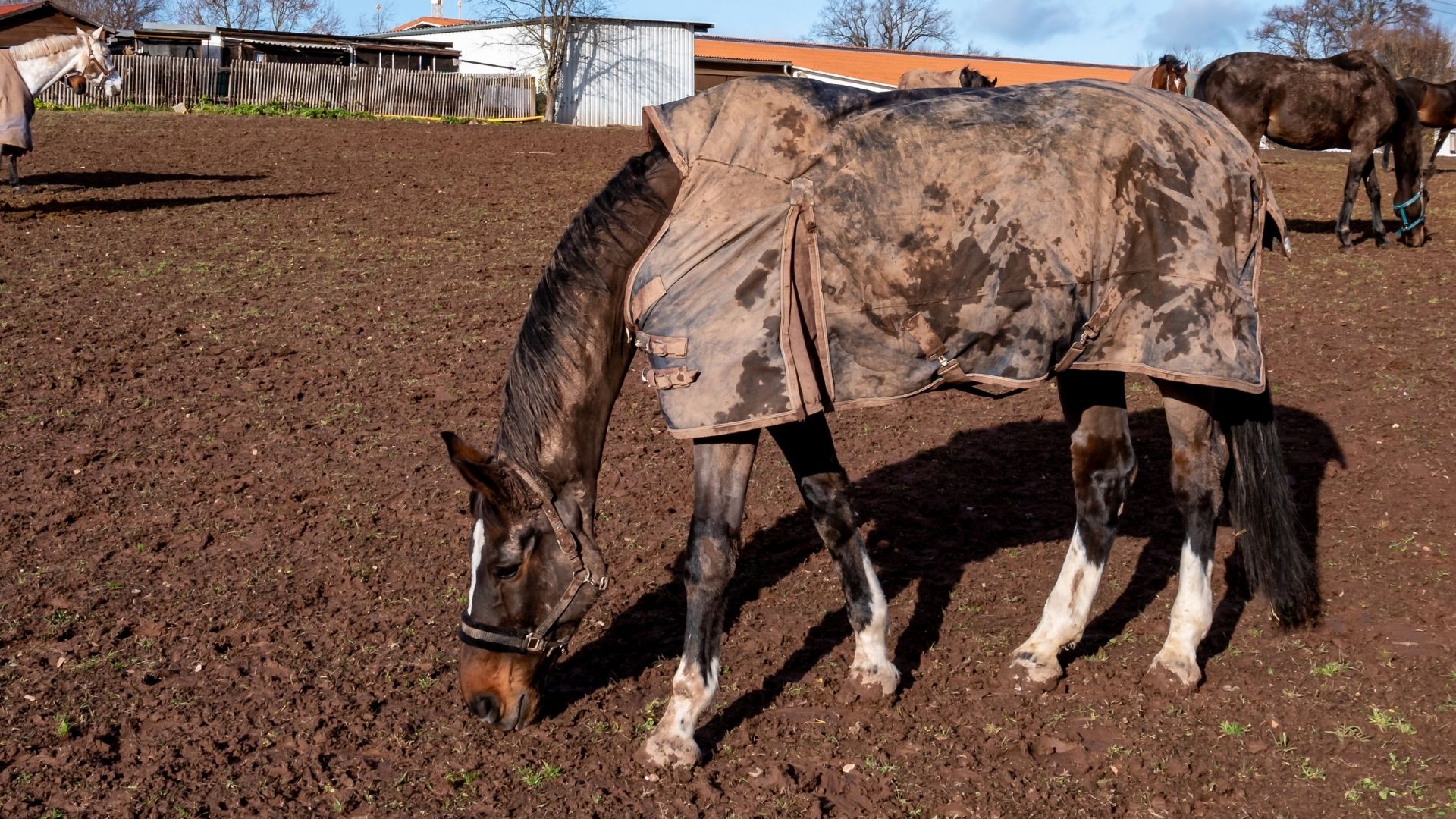
The decision to blanket a horse is a tough one, influenced by factors such as climate, the horse’s health, and individual needs. Blanketing can protect your horse from the elements, but it’s essential to weigh the pros and cons before making this decision.
Factors to consider:
Climate
The climate in which your horse lives plays a significant role in the decision to blanket. Horses are well-adapted to cold weather, and many breeds have a winter coat that provides natural insulation. In moderate climates, horses can often regulate their body temperature effectively without needing blankets. However, extreme weather conditions, such as extreme cold or heavy rain, may warrant using fleece horse blankets for added protection.
Health and age of the horse
The health and age of the horse are crucial considerations. Older horses or those with certain health conditions may struggle to maintain body condition in harsh weather. Blanketing can help these horses conserve energy and stay warm. Conversely, healthy, younger horses with a proper winter coat may not require blankets in milder conditions.
Shelter availability
Shelter availability in the horse’s environment is another key factor. If horses have access to well-designed shelters where they can escape harsh weather conditions, they may not need horse fly sheets or blankets as much. On the other hand, horses without adequate shelter may benefit from blankets to provide an extra layer of warmth.
Individual horse needs
Each horse is unique, and their tolerance to cold weather varies. Some horses are naturally hardier and can withstand colder temperatures without discomfort, while others may be more sensitive. Pay attention to your horse’s behavior and condition to gauge their individual needs.
Pros of blanketing:
Protection from extreme weather
Blanketing provides a layer of insulation that can protect horses from extreme weather conditions, including frigid temperatures, heavy rain, or biting winds. This is especially beneficial for horses with a thin coat or those that have been recently clipped.
Energy conservation
In colder weather, horses use more energy to maintain their body temperature. Blanketing can help conserve this energy, allowing horses to maintain better body condition and health during the winter months.
Prevention of coat damage
For horses regularly ridden or shown, blanketing can help prevent damage to their coat caused by mud, rain, or snow. This is particularly important for horses involved in competitive areas where coat appearance is a factor.
Cons of blanketing:
Interference with natural coat regulation
Blanketing may interfere with a horse’s natural ability to regulate its coat. Constant blanketing, particularly in mild weather, can hinder the development of a healthy winter coat and may make the horse more dependent on blankets for warmth.
Risk of overheating
Inappropriately blanketing a horse, especially in milder temperatures, can lead to overheating. If a horse sweats excessively under the blanket and cools down rapidly, it may be prone to health issues such as chills or respiratory problems.
Financial and time commitment
Blanketing involves financial and time commitments. Quality pony blankets can be expensive, and the time spent putting on and taking off blankets should be considered. Additionally, regular maintenance, cleaning, and repairs are necessary to ensure the blankets remain effective.
Conclusion
Ultimately, the decision to blanket a horse should be based on a thorough understanding of the horse’s individual needs, the climate, and available resources. Regular monitoring of the horse’s health and behavior, along with providing adequate shelter, is essential. Blanketing can be a valuable tool for protecting horses in certain situations, but it should be used carefully to avoid unintended consequences. Consulting with a veterinarian or equine professional can provide personalized guidance based on your horse’s specific needs.



